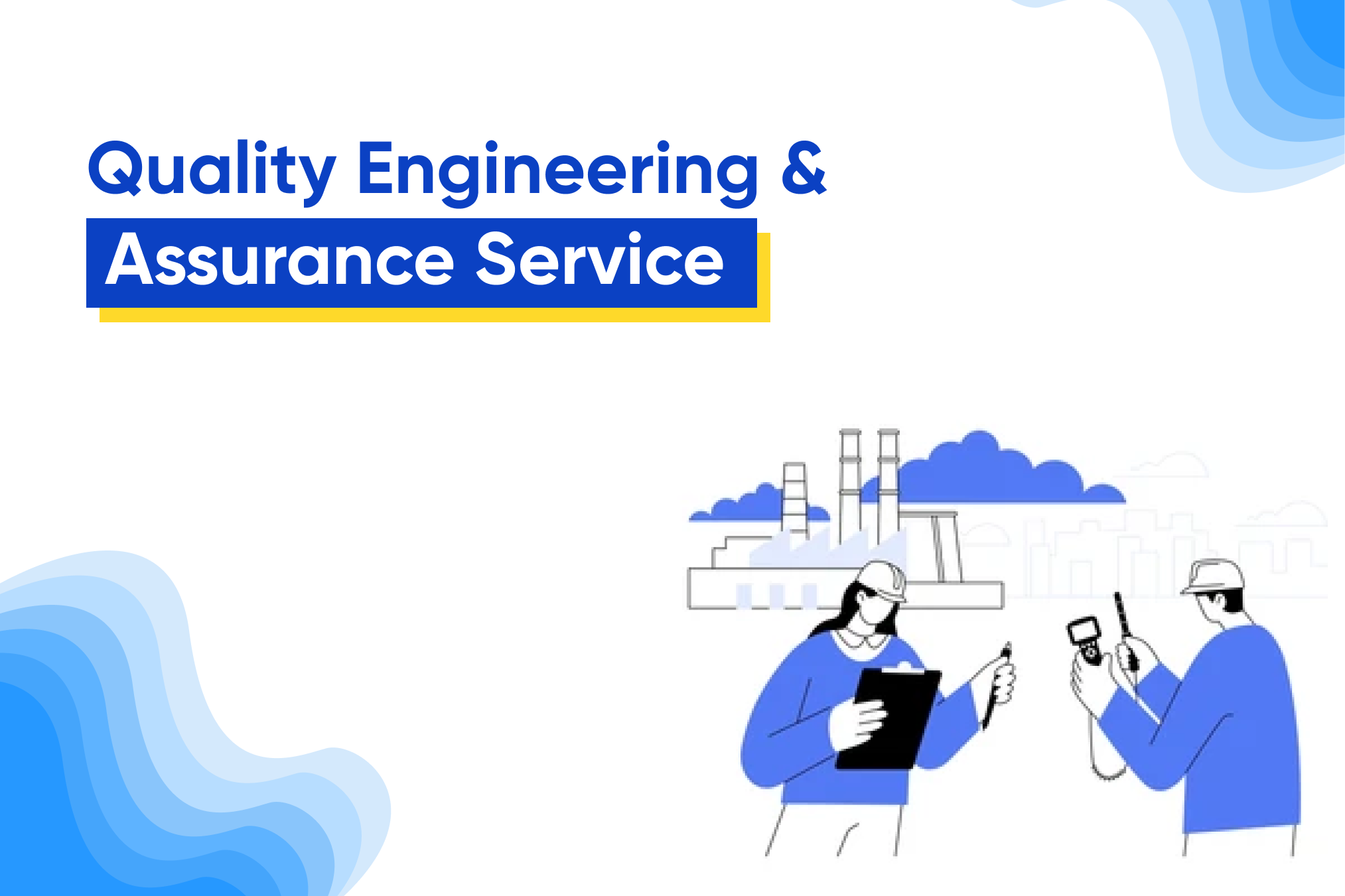

A comprehensive evaluation of your current approach to QE. This involves comparing against a blueprint used by industry leaders, assessing across organizational, process, and technology perspectives, and developing a strategic roadmap to advance your organization’s QE maturity and effectiveness.
Quality engineering is the discipline of engineering concerned with the principles and practice of product and service quality assurance and control. In software development, it is the management, development, operation, and maintenance of IT systems and enterprise architectures with a high-quality standard.
Quality engineering body of knowledge includes:
A quality engineer oversees an organization's manufacturing and engineering processes by ensuring the proper use of tools, materials, and procedures. They also work with the quality team to create and maintain standards for manufactured products. Document any issues in the production process and develop ways to fix them.
With the increase in emerging technologies combined with the need to constantly enhance collaboration within project teams, a need for better testing methodologies and a tool kit that supports the advanced testing has emerged. Automation expertise went from a nice to have to a must-have in recent years and testers that are able to troubleshoot alongside engineers became an expectation. All this requires a Quality Analyst with a unique mindset and a deep understanding of technical infrastructure. To ensure we are creating the best possible user experience for our client’s customers, both Quality Analysts and Quality Engineers are an important part of our teams. While there are many benefits gained with the addition of Quality Engineering, here are a few key benefits
Cost Savings
Fixing bugs is expensive. Development time is costly, and time spent fixing issues is time that can’t be spent on things like feature implementation. Quality Engineers are proficient at identifying where issues live within a complex system which means your developers spend less time tracking down bugs during the development process. Quality Engineers can point developers in the right direction, thus saving time and money in the long run.
Delivering on quality before the build reaches production helps your team avoid costly bugs in production. By limiting revenue impacting bugs, teams can avoid costly hotfixes and keep their attention focused on delivering a quality experience for your customers
Time Savings
Time is always a concern in software development. There never seems to be enough of it. When the project comes down to the wire, teams are often faced with the difficult choice of sacrificing testing time to meet their deliverable date.
Testing is a time-consuming task, but Quality Engineers look for opportunities to save precious time by optimizing their testing approach. Automating time-consuming tests, identifying tools that increase efficiency, and building infrastructure that can be leveraged across multiple projects are just some of the contributions Quality Engineers provide to the overall team.
Better Quality
Apps are becoming increasingly complex entities. Long gone are the days of apps driven by local data. The architecture has become more involved, and testing integration between the various layers is more critical than ever.
Traditional Black Box testing leaves much to be desired. Enter the Quality Engineer. A thorough understanding of the architecture combined with a gray box approach to testing allows for more thorough testing of the system as a whole.
Improved Planning
Quality Analysts act primarily as a gatekeeper of code. When developers make changes, QAs test and determine whether the product is ready to go to market. However, what happens if QA identifies an issue that requires a significant rework to properly address? Re-architecting your application is time-consuming and costly.
Quality Engineers are able to facilitate discussions during the planning phase of the project that provides additional insight and perspective that may help to recognize limitations around proposed implementations early on. They openly coordinate with developers to strategize the best approach to build and test. Catching potential pitfalls early can help us help our clients get to market quicker while still delivering quality.
Improved communication
Quality Engineers operate in the gray box space. They test systems like an end-user, but also have traceability into the underlying systems. This allows them to provide valuable insights into conversations, particularly those between technical and non-technical roles. Their unique perspective helps to highlight gaps from both a user and a system perspective.
Quality Engineers are capable contributors to client or customer conversations. Their input and experience help to build trust and open new avenues of discussion in order to ensure the highest quality overall product is ultimately produced.
Manufacturing engineering is a branch of professional engineering that shares many common concepts and ideas with other fields of engineering such as mechanical, chemical, electrical, and industrial engineering. Manufacturing engineering requires the ability to plan the practices of manufacturing; to research and to develop tools, processes, machines, and equipment; and to integrate the facilities and systems for producing quality products with the optimum expenditure of capital.
The manufacturing or production engineer's primary focus is to turn raw material into an updated or new product in the most effective, efficient & economic way possible.
Test automation helps in reducing regression testing time and cutting down the time to market with significant cost savings on a long-term basis. However, a clear automation strategy and roadmap are key to ensuring the right return on investment on your automation initiatives. With disparate application architecture, multiple environments, third-party integrations, and multiple user devices, a standardized and consistent automation approach is needed to ensure high reusability, ease of maintenance, and lower upfront costs.
ENGINEERING QUALITY INSPECTION SERVICES, popular as EQIS, was established in the year 1999. The firm had its humble beginning with a small team of men, experienced for over 40 years in NDT, with one Gamma Radiography camera for a single client. The firm gradually grew over the years and expanded its operations to offer other Non-Destructive Testing (NDT) services using such as X-Ray Testing, Ultrasonic Testing, Ultrasonic Thickness Measurement, Penetrant Testing, Magnetic Particle Testing, Hardness Measurement, Positive Material Identification, Local Stress Relieving, NDT Training and Consultancy, etc. to various National & International clients on a regular basis. The firm is presently certified to ISO 17025 NABL standards for its quality management system and services.
QA and testing functions tasked with ensuring the right user experience, digital transformation brings big challenges and opportunities such as:
Software quality engineering (SQE) is the process of implementing quality checks throughout the entire development cycle. SQE plays a key role in ensuring fast-paced agile and DevOps teams produce high-quality software.
Quality Assurance “assures” quality of the product, but quality engineering drives the development of quality products and processes.
QA software testing services granted by our company let customers monitor product development at all stages and demonstrate product quality information